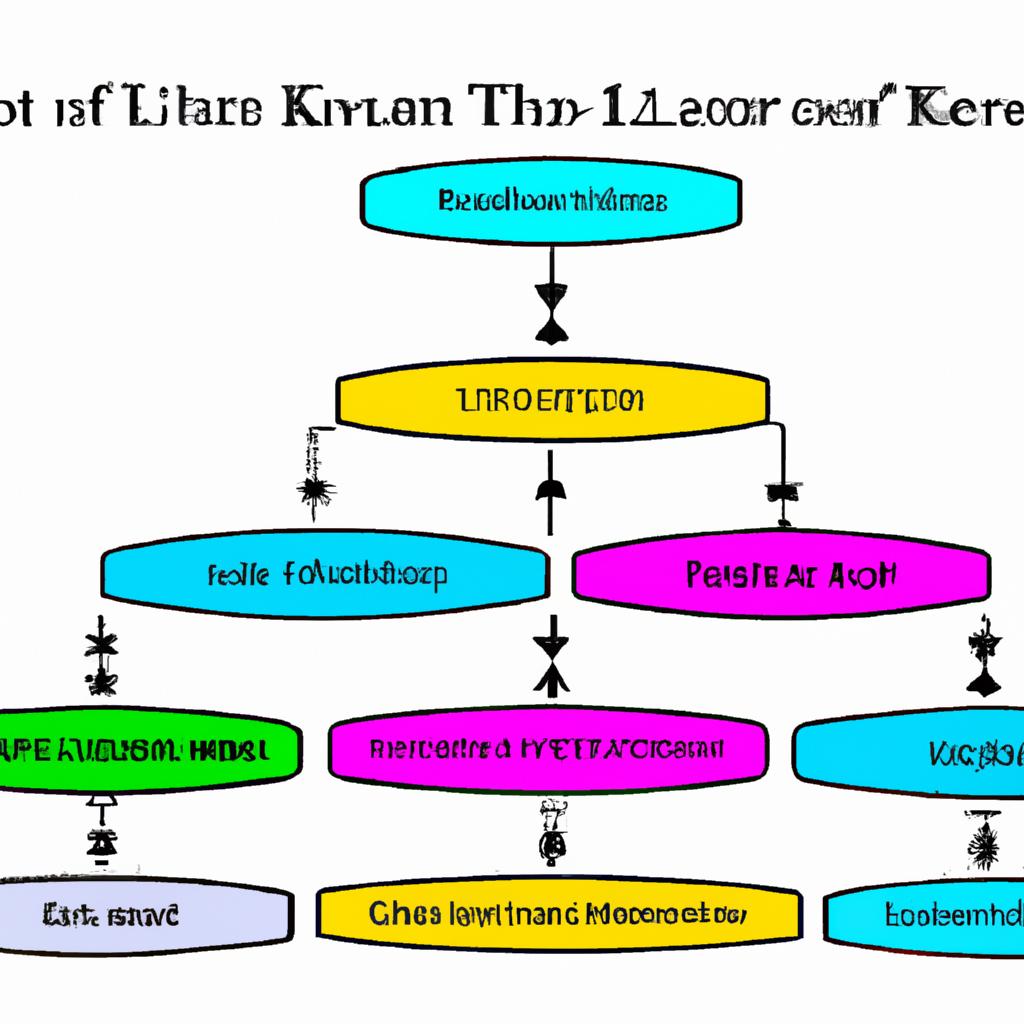When a loved one passes away, grieving family members are often faced with the daunting question of who is next of kin. In the legal realm, determining the next of kin plays a crucial role in matters of inheritance, property rights, and decision-making. As seasoned lawyers at Morgan Legal Group in New York City, we specialize in guiding individuals through the complex issues surrounding estate planning, probate, elder law, Wills, and trusts. Join us as we explore the intricacies of next of kin designation and unravel the various implications it holds in the event of a loved one’s passing.
Determining the Next of Kin in the Event of a Death
In the unfortunate event of a death, determining the next of kin is a crucial step in the handling of the deceased person’s affairs. The next of kin is typically the closest living relative to the deceased individual, and they may have various legal rights and responsibilities in the estate settlement process. Understanding who qualifies as the next of kin can vary depending on state laws and individual circumstances.
Factors to Consider When Determining Next of Kin:
- Relationship to the deceased: The next of kin is usually a spouse, child, or parent of the deceased.
- Legal documentation: Wills, trusts, and other estate planning documents may specify the next of kin.
- State laws: Each state has specific laws governing who qualifies as the next of kin in the absence of legal documentation.
- Conversations with the deceased: If the deceased person expressed their wishes regarding their next of kin, this may influence the decision-making process.
| State Laws | Definition of Next of Kin |
|---|---|
| New York | Spouse, children, parents, siblings in that order |
| California | Spouse, children, parents, siblings in that order |
| Florida | Spouse, children, parents, siblings in that order |

Understanding the Legal Hierarchy of Next of Kin
When someone passes away, becomes essential in determining who has the right to make decisions regarding the deceased individual’s estate and affairs. In the eyes of the law, the next of kin is typically considered to be the closest living relative of the deceased. In most cases, the next of kin is determined based on a specific order of priority established by law.
It’s important to note that the legal hierarchy of next of kin may vary depending on the jurisdiction in which the individual passes away. However, in general, the next of kin order is typically as follows:
- Spouse: The surviving spouse is usually considered the first in line as next of kin.
- Children: If there is no surviving spouse, the deceased individual’s children are typically next in line.
- Parents: In the absence of a surviving spouse or children, the deceased individual’s parents are often considered next of kin.

Navigating Complex Family Dynamics in Next of Kin Determinations
In the event of someone’s passing, determining the next of kin can be a complex process that involves navigating intricate family dynamics. When a loved one dies without a will, state laws typically dictate who is considered the next of kin. However, disputes can arise, especially in cases where there are multiple potential heirs. In such situations, it is crucial to seek legal guidance to ensure that the correct individual is recognized as the next of kin.
- Family members may have differing opinions on who should be designated as the next of kin
- Legal battles may ensue if there are disagreements among relatives
At Morgan Legal Group, we understand the complexities involved in determining next of kin in the event of a loved one’s passing. Our team of experienced attorneys can provide expert counsel and assistance in navigating these delicate family dynamics. Whether you are seeking to establish your own next of kin designation or are involved in a dispute over next of kin status, we are here to help guide you through the process and ensure that your wishes are honored.
| Services | Details |
|---|---|
| Estate planning | Creating wills and trusts to determine next of kin |
| Probate | Assisting with legal proceedings to determine next of kin |
| Elder law | Supporting elderly clients in establishing next of kin designations |

Ensuring the Smooth Transition of Assets to the Right Next of Kin
In the event of someone’s passing, it is crucial to determine who the rightful next of kin is to ensure a smooth transition of assets. The next of kin is typically the closest living relative to the deceased individual and is entitled to inherit their estate according to state laws. It is important to identify the next of kin promptly to avoid any disputes or delays in the distribution of assets.
- Identifying the next of kin may involve determining the closest blood relatives such as spouses, children, parents, or siblings.
- It is essential to consult with a legal professional specializing in estate planning to ensure that the rightful next of kin is identified and that the distribution of assets is carried out according to the deceased individual’s wishes or state laws.
Q&A
Q: Who is considered the next of kin when someone dies?
A: The next of kin is typically the closest living relative to the deceased. This is usually a spouse, children, parents, or siblings.
Q: What rights do the next of kin have after someone dies?
A: The next of kin may have the right to make decisions regarding the deceased’s remains, burial or cremation, and estate matters. They may also have the right to inherit the deceased’s assets if there is no will in place.
Q: Can the next of kin be contested?
A: Yes, in some cases the designation of next of kin can be disputed, especially if there are multiple potential candidates or if the deceased has given specific instructions in a will or legal document.
Q: What happens if there is no next of kin?
A: If there is no clear next of kin, the state may step in to handle the deceased’s affairs, including making decisions about the disposal of the remains and distribution of assets.
Q: Can someone designate their own next of kin?
A: While a person can express their wishes for who they consider to be their next of kin, legal designation is typically based on familial relationships and cannot be changed unilaterally without proper documentation.
Insights and Conclusions
In conclusion, understanding who is considered the next of kin when someone passes away is important in navigating legal and logistical matters during such a difficult time. While the laws may vary from state to state, knowing the hierarchy of next of kin can help ensure a smooth and respectful process for all involved. Remember, it’s always best to consult with legal professionals for personalized guidance in these matters. Thank you for reading.
 WHO IS NEXT OF KIN WHEN SOMEONE DIES?
WHO IS NEXT OF KIN WHEN SOMEONE DIES?
Losing a loved one is a heartbreaking and emotional experience that can leave a person feeling lost and overwhelmed. In addition to the emotional toll, there are also important legal and administrative matters that need to be addressed. One such crucial matter is determining who the next of kin is when someone dies.
The next of kin is the person who is considered the closest living relative or family member of a deceased person. This individual is responsible for making decisions about the deceased’s funeral arrangements, handling their estate, and carrying out their final wishes. Understanding who is considered the next of kin can help alleviate some of the stress and confusion during this difficult time. In this article, we will delve into the topic of who is next of kin when someone dies and what it means for you and your loved ones.
WHO IS CONSIDERED NEXT OF KIN?
In most cases, the next of kin is determined by blood relations. This means that the deceased’s closest living relative, such as their spouse or children, are considered their next of kin. However, in situations where the deceased has no living relatives, the next of kin could be determined by a legal relationship, such as a domestic partner, guardian, or close friend.
If the deceased was married, their next of kin would be their spouse. If they were unmarried, their next of kin would be their children, followed by their parents, siblings, and then more distant family members. If the deceased had no surviving family members, their next of kin could be determined by a legal relationship such as a domestic partner or a designated executor of their estate.
WHAT ARE THE RESPONSIBILITIES OF THE NEXT OF KIN?
The next of kin is responsible for making decisions regarding the deceased’s funeral arrangements and handling their estate if they did not leave a will. If the deceased had a will, the executor listed in the will would be responsible for these duties. However, if the deceased did not leave a will, the next of kin would be responsible for making these decisions on their behalf.
This can include organizing the funeral, selecting a burial or cremation service, and making final arrangements. In some cases, the next of kin may also need to handle the deceased’s financial matters, such as closing bank accounts, notifying creditors and insurance companies, and distributing assets according to state inheritance laws.
WHAT HAPPENS IF THERE IS DISAGREEMENT AMONGST FAMILY MEMBERS?
Unfortunately, disagreements among family members can arise during the process of determining the next of kin and handling the deceased’s affairs. In situations where there is no will, it can be challenging to discern who should be considered the next of kin, especially if the deceased had multiple spouses or children from different relationships.
In these instances, it is important to seek legal advice to ensure that the deceased’s final wishes are carried out and to avoid any conflicts among family members.
BENEFITS AND PRACTICAL TIPS
Having designated next of kin can help alleviate confusion and uncertainty during a difficult time. It is essential to have a will in place, clearly outlining who should be considered the next of kin and what their responsibilities are. This can help avoid disputes among family members and ensure that the deceased’s final wishes are carried out.
In addition, if you find yourself in the role of the next of kin, it is important to communicate with other family members and involve them in decision-making processes. This not only helps to ease any potential conflicts but also ensures that everyone has a say in honoring the deceased’s memory.
FIRST-HAND EXPERIENCE
I found myself in the role of next of kin when my uncle passed away suddenly. It was a difficult and emotional time for my family, but having designated next of kin in his will helped to make the process more manageable. While it was a difficult decision to make the funeral arrangements and handle his estate, I knew that I was fulfilling his final wishes, which provided some solace during this tough time.
CONCLUSION
Losing a loved one is never easy, and the process of determining the next of kin and handling their affairs can add to the stress. Knowing who is considered next of kin and what their responsibilities are can help ease this burden and ensure that the deceased’s final wishes are carried out. In cases where there are disagreements among family members, seeking legal advice can help resolve conflicts and ensure a smooth and respectful process. Remember to have a will in place to clearly define who should be considered your next of kin and what their responsibilities are to avoid any confusion or disputes in the future.


